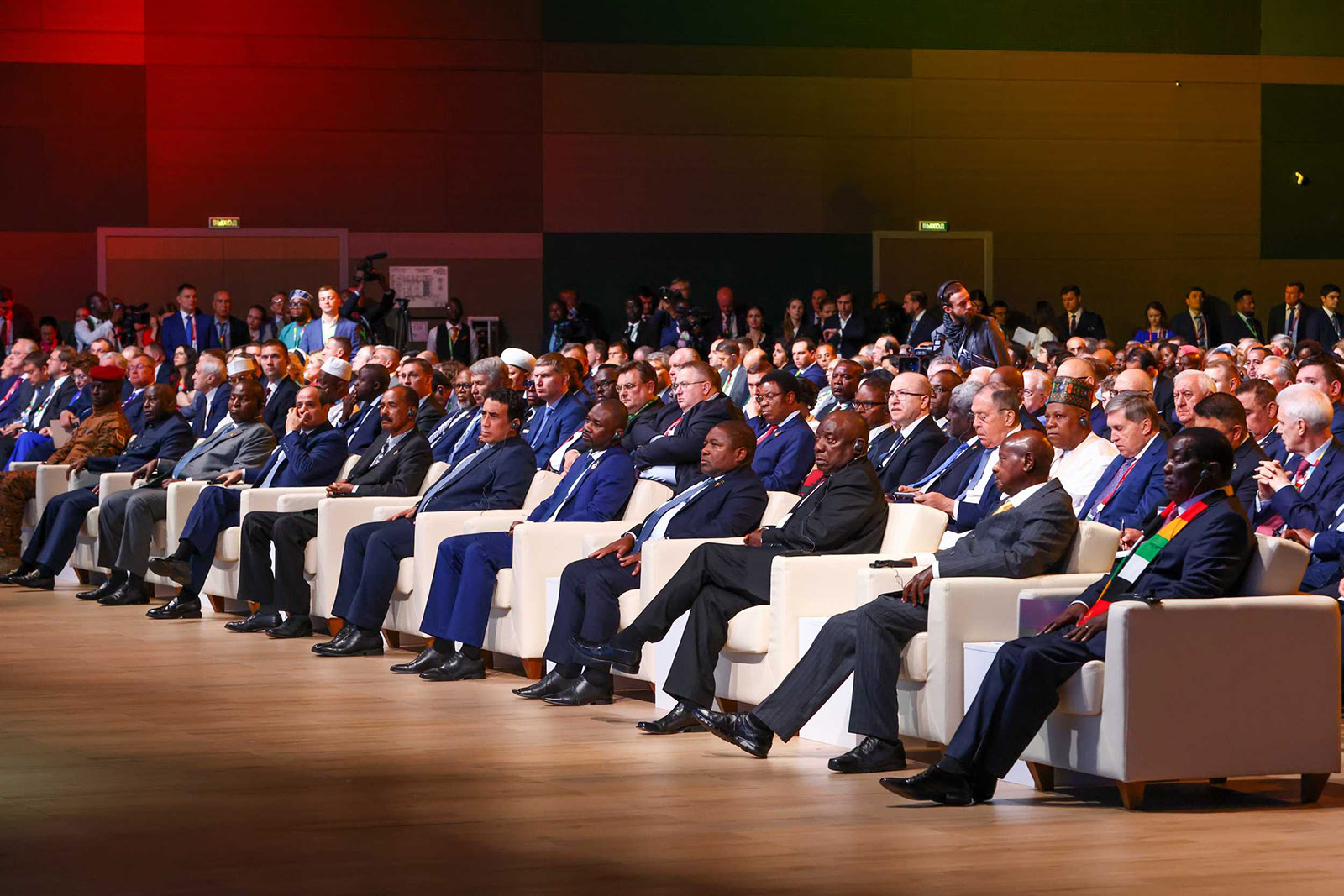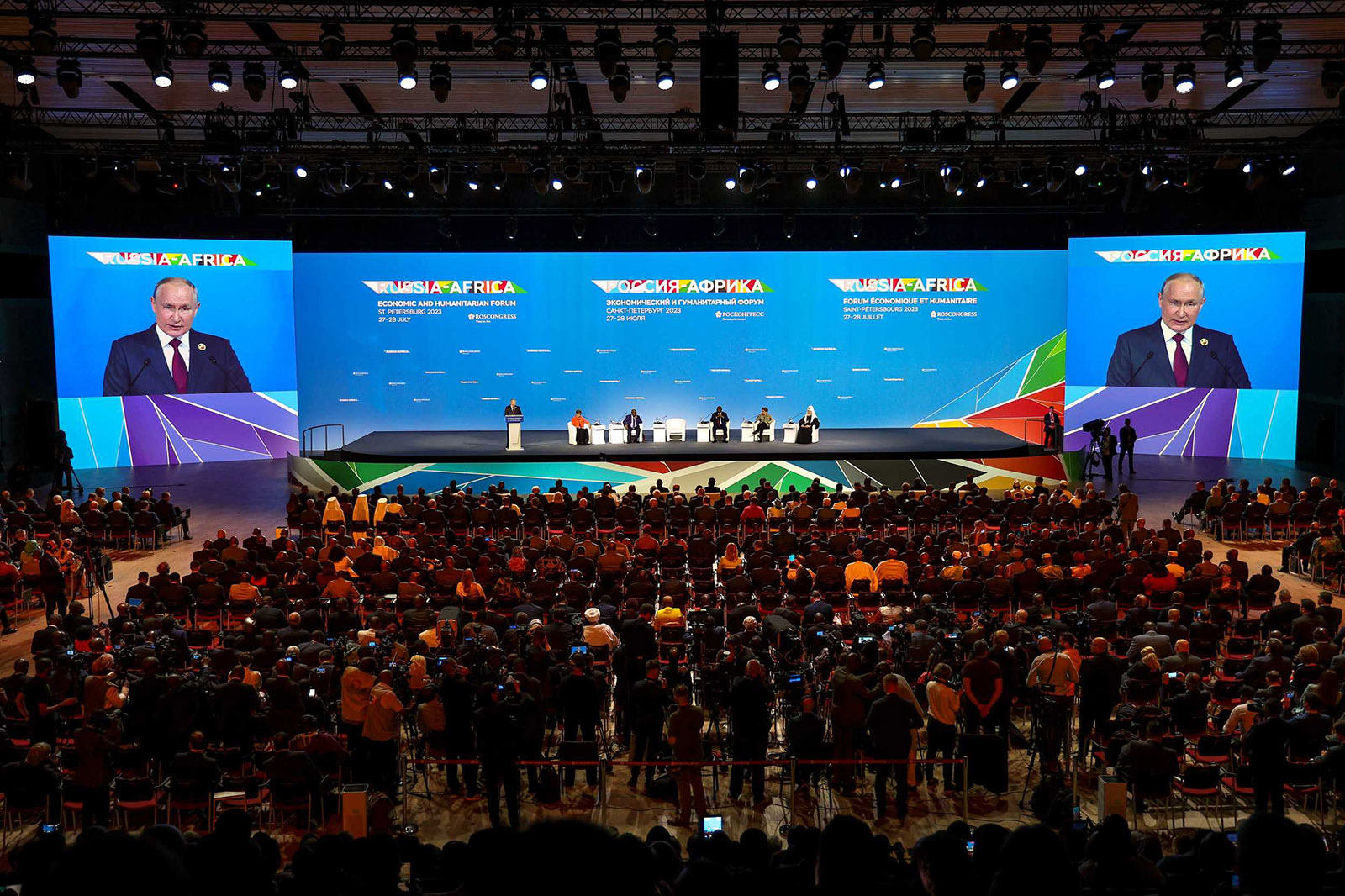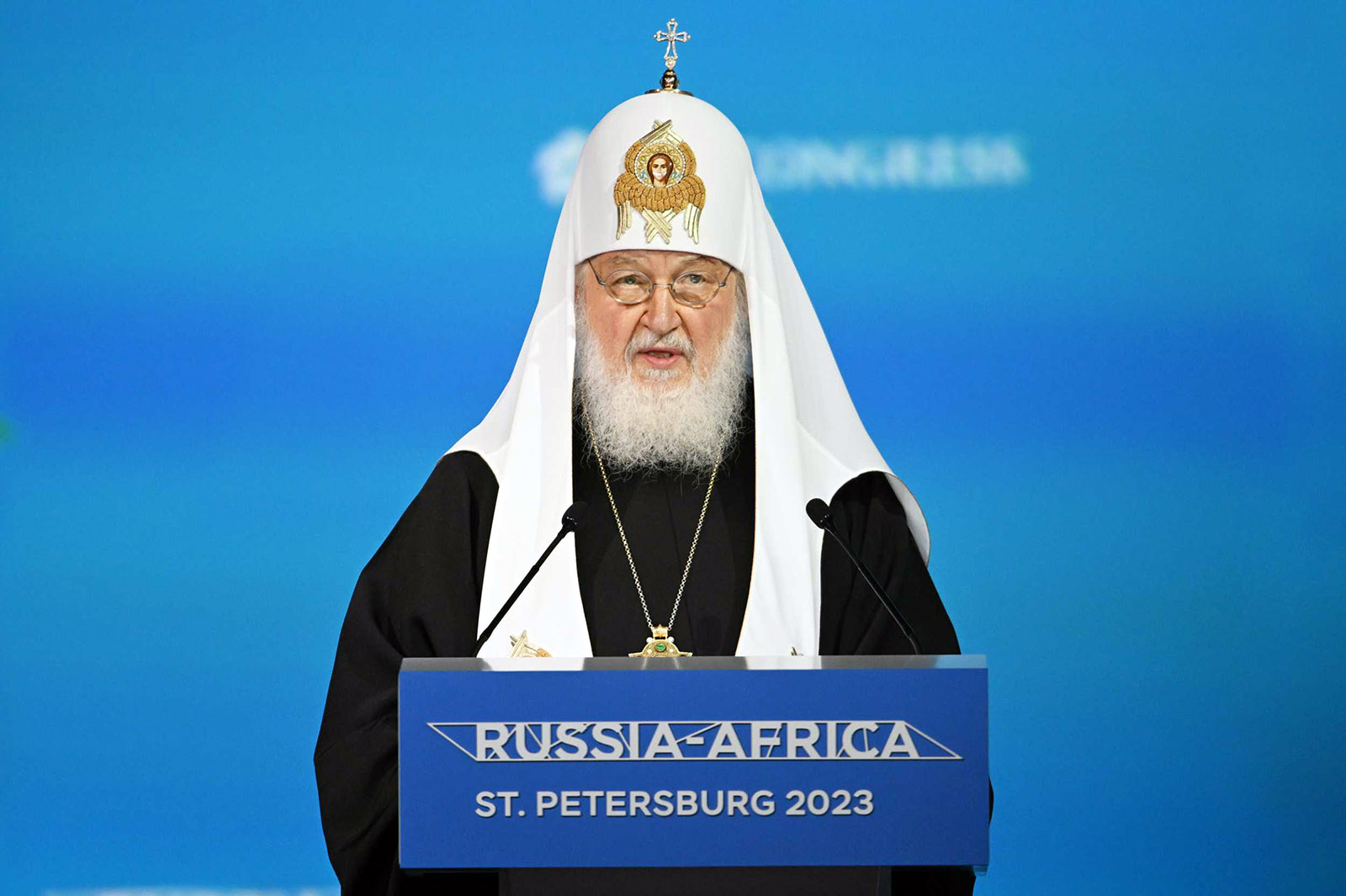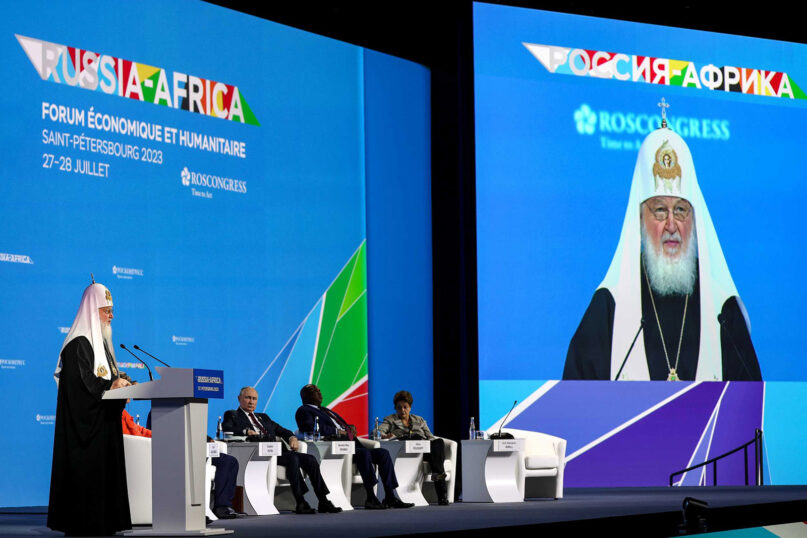(RNS) — Meeting with African leaders late last month, Russian Patriarch Kirill boasted of the continued expansion of the Russian Orthodox Church in their countries, paralleling the strategy of the leaders’ host, Russian President Vladimir Putin, to expand Kremlin influence across the continent.
The Moscow Patriarchate said it had almost doubled its size in Africa since 2021, when it established its own local church structure known as an exarchate. The move challenges the sway the Greek Orthodox Church had long held over the African continent through the Patriarchate of Alexandria in Egypt.
The patriarch told the leaders at the July 27-28 Russia-Africa Summit in St. Petersburg that the exarchate, which has been wooing Orthodox priests away from the Alexandria Patriarchate, “has opened over 200 parishes in 25 African countries.”
Kirill was clear about what awaited an African priest who switches his loyalty. “The exarchate has also started implementing many humanitarian and educational projects, which include, among many other things, translating books into local languages,” he told his audience.
“Developing our pastoral activities, we strive to make our contribution to the strengthening of Russia-Africa ties, to improve people’s welfare. Wherever our parishes open, there are new schools, water wells, electric substations, hospitals and cultural centers.”

Attendees listen during the Russia-Africa Summit in St. Petersburg, Russia, July 27, 2023. Photo courtesy of Patriarch of Moscow and All Russia
The autocephalous, or self-governing, Eastern Orthodox churches — numbering up to 17, depending on how they are counted — have traditionally reigned supreme within their own borders. Orthodox geography calls these regions “canonical territories.”
By launching an exarchate, a missionary diocese with its own hierarchy, the Moscow Patriarchate essentially set up an Orthodox challenger to the Alexandria Patriarchate right in its own backyard.
“Africans now demonstrate great interest in the Russian Orthodox Church,” Kirill declared, saying his church “does not distort God-given norms of morality in favor of some fashionable ideological trends.”
The conference was held as Putin is fending off criticism for backing out of a deal that has allowed Ukrainian wheat to be delivered abroad despite Russia’s invasion of Ukraine. Several of the attendees at the conference, whose populations depend on Ukrainian wheat, urged Putin to negotiate an end to the war.
Some of the African leaders are supported by the Wagner Group of mercenaries, who spread Kremlin influence while providing it with deniability because Russian troops are not involved. Wagner boss Yevgeny Prigozhin even met privately with Kremlin clients in St. Petersburg for the summit.

Russian President Vladimir Putin speaks during the Russia-Africa Summit in St. Petersburg, Russia, July 27, 2023. Photo courtesy of Patriarch of Moscow and All Russia
Putin’s influence in Africa has been somewhat diminished by his decision to attack Ukraine. Many Africans who were invited snubbed this second version of the summit, with only 17 African heads of state or government attending compared to 43 at the first such event in 2019.
These developments only underlined the importance of the soft-power influence that the Russian Orthodox Church exerts for Moscow in Africa. In his address, Kirill, 76, gave his African listeners the conservative and anti-Western message that many of their people — Christian or not — share.
He denounced “moral relativism, the cult of profit and consumption, freedom misinterpreted as all-permissiveness, a threat of destruction facing the institution of the traditional family.”
That included “same-sex marriage, euthanasia and other sinful doings,” he said. “Our stance on these matters is what brings us closer together. … We … are always happy to meet with those who share our ideas.”
Orthodoxy in Africa dates back to the Apostle Mark, who was martyred in Alexandria, but remains a minority faith almost everywhere except Ethiopia and Eritrea. Several tens of millions of Africans, mostly in eastern Africa, belong to the rival Coptic Orthodox churches.
Eastern Orthodoxy began to spread in Africa with the arrival of Greek and Syrian traders in the 19th century, but its adherents number only about half a million. Local congregations are mostly African Christians who believe it represents the original Christian faith.
The defection of priests from the Alexandria Patriarchate to Moscow’s oversight began in 2021 with 102 priests who opposed Alexandria’s recognition of the autocephalous Ukrainian church or were dissatisfied that most Alexandrian bishops were expatriate Greek Orthodox clerics.
Alexandria has not held back in denouncing what it calls Moscow’s “invasion” of Africa. Patriarch Theodoros II briefed U.S. President Joe Biden about it at the White House last October and characterized Kirill in a recent interview as “a thief in the night.”

Patriarch Kirill addresses the Russia-Africa Summit in St. Petersburg, Russia, July 27, 2023. Photo courtesy of Patriarch of Moscow and All Russia
The Russian Orthodox Church has benefited significantly since ex-KGB officer Putin, now 70, came to power in 1999. Many church buildings at home and abroad have been renovated or newly built, usually with funds from the state or “contributed” by Kremlin-friendly oligarchs.
Orthodoxy has unofficially succeeded Marxism-Leninism as a kind of state ideology, and Putin often echoes the church’s conservative social policies.
The Moscow Patriarchate has also won several victories in reasserting its role after its suppression under communism, most recently the transfer of Russia’s most famous icon from a state museum to the church.
Art historians argued that the 15th-century icon “Trinity,” which depicts three angels visiting the Prophet Abraham, would be damaged if moved from the Tretyakov Gallery’s strict atmospheric controls.
One of them, Ksenia Korobeynikova, told Reuters its importance to Russia was comparable to that of Leonardo da Vinci’s “Mona Lisa” for European culture.
But Putin supported the transfer and in early June the icon went to Moscow’s Cathedral of Christ the Savior, a move seen as Kremlin backing for Kirill’s support for the Ukraine war as a “metaphysical” battle against evil and a decadent West out to destroy Russia.
There was only one possible slip in Kirill’s patriotic address at the St. Petersburg summit. At the start, he addressed Putin in the Russian fashion by his given name and patronymic, which indicates his father’s name.
But instead of correctly saying “Vladimir Vladimirovich,” Kirill called him “Vladimir Vasilyevich” before quickly correcting himself.
Intentional or not? The only Russian leader with the patronymic “Vasilyevich” was Tsar Ivan the Terrible, a point promptly noted on social media.
A grim-faced Putin simply smiled weakly and nodded as Kirill proceeded with his speech.





